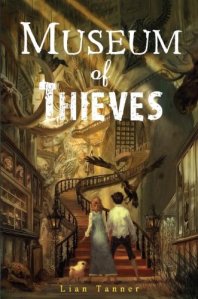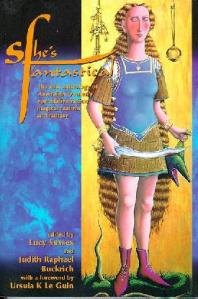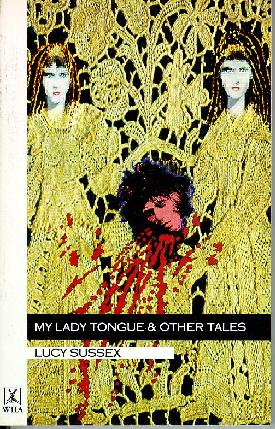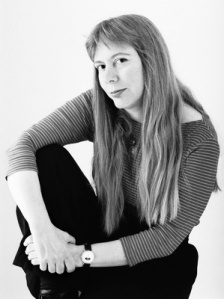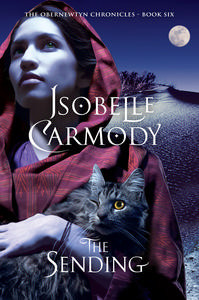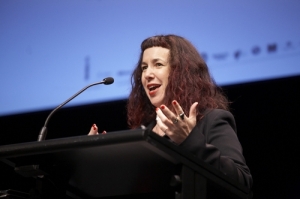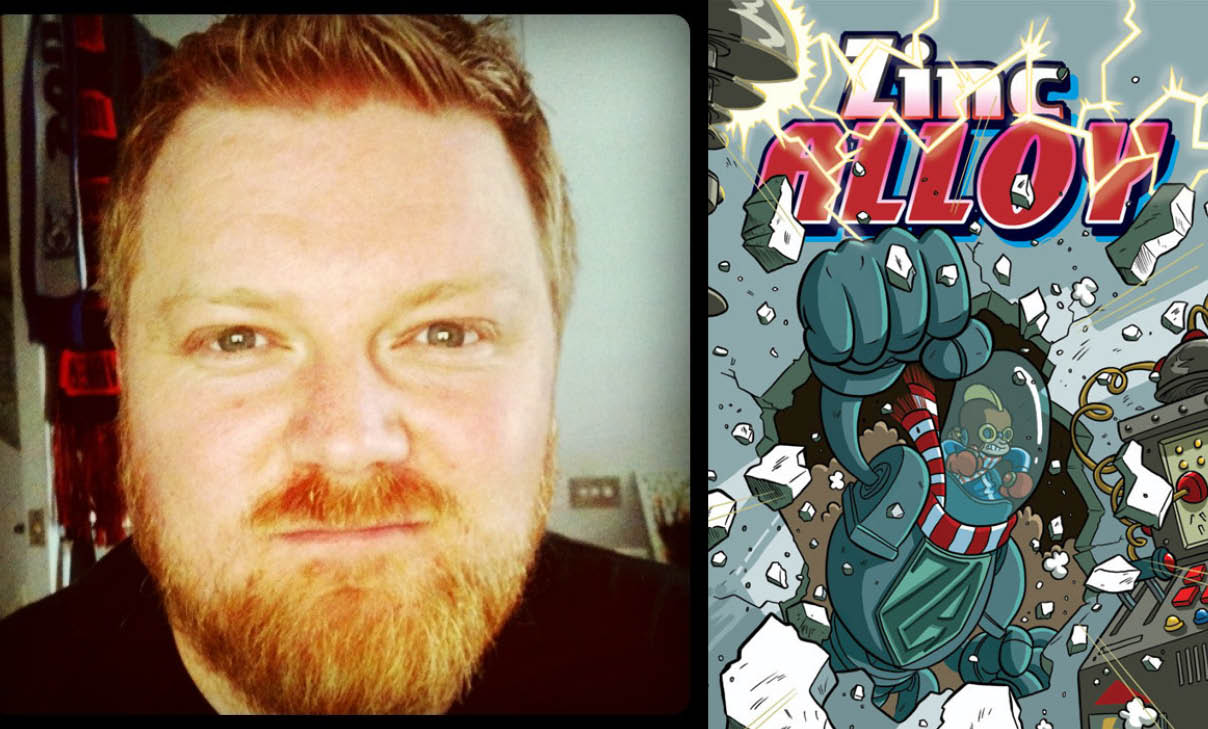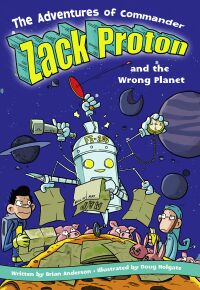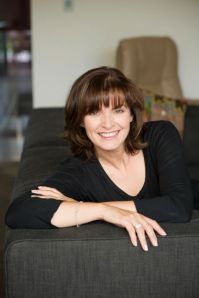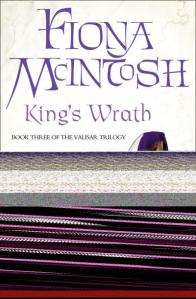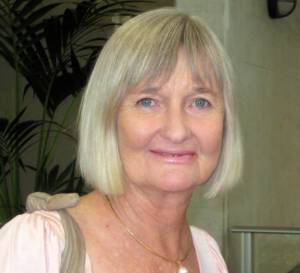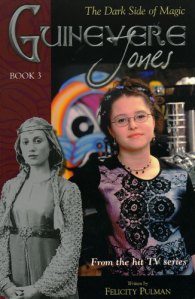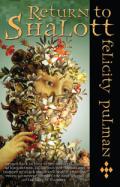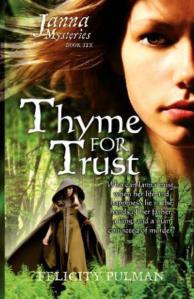Today I’m interviewing Ian Irvine because someone where I work turned around this week and said, I don’t read much fantasy, but I love Ian Irvine’s books. I’m also asking Ian the same questions I’ve asked the female writers about fantasy writing and gender, to get his perspective as a male writer.
Look out for the give-away at the end of the post.
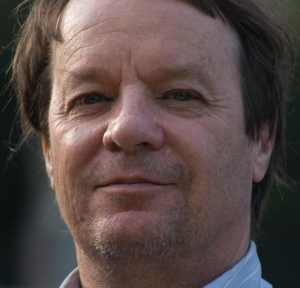
Q: You have a PhD in Marine Science (plus you’ve travelled a lot in your capacity as a marine scientist). The PhD must help when you’re writing your eco-thrillers (Human Rites series), but did the scientific mind get in the way when you are writing your Three Worlds Cycle, fantasies?
I’ve been interested (indeed, fascinated) by science since an early age, and decided I wanted to be a scientist around 13 or 14. And since graduating, I’ve worked in the field for the past 30 years, as an expert on contaminated sediments in the bottom of harbours (a world-wide problem). My background was of particular help in writing the Human Rites trilogy, which is set in a near-future world of catastrophic climate change, not least because I did a research project decades ago researching ice ages over the past 5 million years, and I’ve maintained an interest in climate change ever since. My scientific experience and knowledge proved useful in trying to predict what the world of these books would really be like, and how that would affect the lives of the characters.
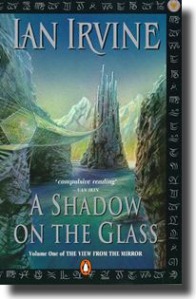 Actually, my scientific mind proved particularly helpful in writing my Three Worlds fantasy novels, in world-building, for instance. Because I’d studied all the major scientific disciplines, I was well-equipped to design both plausible and realistic worlds for the series, and a variety of intelligent species to inhabit these worlds.
Actually, my scientific mind proved particularly helpful in writing my Three Worlds fantasy novels, in world-building, for instance. Because I’d studied all the major scientific disciplines, I was well-equipped to design both plausible and realistic worlds for the series, and a variety of intelligent species to inhabit these worlds.
It was also invaluable because the life experience a writer has determines the kind of books he or she writes, what he writes about and how he sees the world. For instance, Tolkien was a philologist – he studied languages – and he created the languages of Middle Earth before he wrote the stories. A lot of fantasy writers (eg George RR Martin, Sara Douglass) have studied history, and this colours the stories they write. Other fantasy writers draw inspiration from myths, legends, fairy or folk tales, ancient literatures, and so on. But I’ve never wanted to draw on history, mythology or literature for my stories, and neither did I want to write in traditional settings. I wanted to tell my own stories in my own way, in worlds I’d created myself.
Two writers I particularly enjoy who have a strong scientific background are Laura Kinsale (romance – she was a geologist) and Diana Gabaldon (genre-crossing stories – Ph.D. in marine biology). Personally, I find that my scientific background gives me a unique perspective in writing fantasy, and that’s a good thing, because it makes my writing different to other authors. For instance, if I’m describing a common fantasy phenomenon such as a portal, I imagine what it would really be like – differences in temperature, humidity, air pressure etc between the two locations could lead to a gale howling through the gate as soon as it opens, or water vapour condensing in clouds of fog etc. This kinds of realistic details help to make the story more grounded and real.
 Q: You’ve written 27 books including fantasy, eco-thrillers and children’s books. Do you find readers follow you from genre to genre? Do you think kids who read your children’s books will grow up to be readers of your fantasies and/or eco-thrillers?
Q: You’ve written 27 books including fantasy, eco-thrillers and children’s books. Do you find readers follow you from genre to genre? Do you think kids who read your children’s books will grow up to be readers of your fantasies and/or eco-thrillers?
Most readers don’t genre hop, unfortunately, and few of my readers who are fantasy fans will ever read my eco-thrillers. I know this because both fans and booksellers have told me. For this reason, publishers don’t like their authors (especially the big name authors) writing in other genres, because they know most of their readers won’t follow. Raymond Feist once said that it took years before his publishers would agree to let him write Faerie Tale, because it was so different to his other work.
Having said that, children are less fixed in their reading tastes than adults. And all twelve of my kids’ books have been fantasy in one form or another, so I’m hopeful that many of those readers will read my epic fantasy stories when they’re older.
 Q: Your office looks absolutely wonderful! Such a peaceful place to write. But you didn’t always have a fancy office. In an interview on Tristan Bancks‘ blog you say: ‘I wrote the whole first draft of one of my big fantasy novels, The Way Between the Worlds, in my spare time on a consulting assignment in Fiji. I’ve also written in a sweltering mine site donga on Horn Island in Torres Strait, at the top of a mountain in Papua-New Guinea, in Mauritius, Indonesia and the Philippines, and on long jobs for the World Bank in Korea.’ Would you say if the story is compelling enough a writer can write anywhere?
Q: Your office looks absolutely wonderful! Such a peaceful place to write. But you didn’t always have a fancy office. In an interview on Tristan Bancks‘ blog you say: ‘I wrote the whole first draft of one of my big fantasy novels, The Way Between the Worlds, in my spare time on a consulting assignment in Fiji. I’ve also written in a sweltering mine site donga on Horn Island in Torres Strait, at the top of a mountain in Papua-New Guinea, in Mauritius, Indonesia and the Philippines, and on long jobs for the World Bank in Korea.’ Would you say if the story is compelling enough a writer can write anywhere?
 I am blessed in my office; it’s where I’ve done almost all my writing for the past 20 years. Though it didn’t start out a writing office and, when it was built I couldn’t have justified the expense (being unpublished then) as a place to write. It was built as my consulting office, and it’s where I went to work every day as a marine scientist until I became a ‘full-time’ writer in 2000 (I still do quite a bit of consulting; I have 1.5 full-time jobs).
I am blessed in my office; it’s where I’ve done almost all my writing for the past 20 years. Though it didn’t start out a writing office and, when it was built I couldn’t have justified the expense (being unpublished then) as a place to write. It was built as my consulting office, and it’s where I went to work every day as a marine scientist until I became a ‘full-time’ writer in 2000 (I still do quite a bit of consulting; I have 1.5 full-time jobs).
I wouldn’t say that if the story is compelling enough a writer can write anywhere. Rather, that if the urge and need to write is desperate enough, a writer can write anywhere. In those days, working as a marine scientist, I had to make use of every free second to do my writing otherwise I would never have got it done.
Q: You children’s series Grim and Grimmer sounds like a heap of fun. During an interview on DG Yarns you say: “After about twenty-four hours of hard labour I came up with a great title, Grim and Grimmer, and every time I mentioned it, people smiled. See, you’re doing it now.
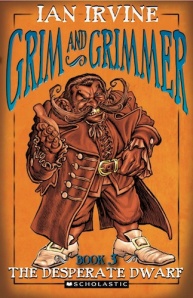 So I sat down, invented the silliest and most extravagant characters I could think of, then sketched out a fiendishly complicated plot where they only got out of one desperate trouble to plunge immediately into a worse one. And every time I thought, no one should ever suffer like this, I went har, har, yes they should, and thought of a hundred and three more ways to torment them, working on the principle that if the characters are having a good time, my readers aren’t.’
So I sat down, invented the silliest and most extravagant characters I could think of, then sketched out a fiendishly complicated plot where they only got out of one desperate trouble to plunge immediately into a worse one. And every time I thought, no one should ever suffer like this, I went har, har, yes they should, and thought of a hundred and three more ways to torment them, working on the principle that if the characters are having a good time, my readers aren’t.’
After your serious eco-thrillers, do you have to do anything to get into the right frame of mind to write your Grim and Grimmer books?
Not really – pain and torment does it for me every time (author sniggers at the thought). Seriously, I was overcome by the opportunity to write a kind of book I’d never written before – humorous adventure fantasy for children – and when the chance came up, I grabbed it. The only problem was that I was frantic with other deadlines and it was difficult to set aside the uninterrupted time to write and edit each book. But when I got the time, and planned the books in detail, they flowed quickly. They were the most fun I’ve ever had writing and I’m sorry the series is finished.
Q: In your Runcible Jones stories you follow the plot device of having an ordinary boy go through to another world. Were you a big fan of the Narnia books growing up?
 Oddly, though I was a voracious reader from an early age, I didn’t read fantasy as a child – neither The Hobbit, the Narnia books nor any other fantasy I can remember. I don’t know why, because I loved fairy tales and mythological tales. I can only assume that those books weren’t in the school library (I went to a couple of one-teacher primary schools as a kid, where the books came in book boxes and the choice was quite limited).
Oddly, though I was a voracious reader from an early age, I didn’t read fantasy as a child – neither The Hobbit, the Narnia books nor any other fantasy I can remember. I don’t know why, because I loved fairy tales and mythological tales. I can only assume that those books weren’t in the school library (I went to a couple of one-teacher primary schools as a kid, where the books came in book boxes and the choice was quite limited).
I loved SF when I was at school but only discovered fantasy at uni – Tolkien, Ursula le Guin’s Earthsea series, etc. As for the Narnia books, which I also started at uni, I absolutely loathed them – perhaps one has to read them in childhood. I found them sanctimonious, moralising, sexist and thoroughly disagreeable. I think my view of characters travelling through gates or portals came from SF rather than fantasy – I guess, in particular, CJ Cherryh’s Morgaine trilogy (Gate of Ivrel, Well of Shiuan, Fires of Azeroth) which I read in the late 70s.
Q: I like your premise for the Sorcerer’s Tower series. Your main character is ‘the only kid in the world who can’t do magic’. It immediately turns the trope of ‘the chosen one’ on its head. Do you like to play with the genre tropes?
 Not deliberately. To be honest, I’m not sure I understand what a trope is. Having Tamly being the only kid who couldn’t do magic just ‘seemed like a good idea at the time’. But I hate writing stereotypical or archetypal characters – princess, magician, warrior etc. I avoid them if I can, or if I can’t, I like to twist or invert them. Hey, maybe I am playing with the genre tropes without knowing it.
Not deliberately. To be honest, I’m not sure I understand what a trope is. Having Tamly being the only kid who couldn’t do magic just ‘seemed like a good idea at the time’. But I hate writing stereotypical or archetypal characters – princess, magician, warrior etc. I avoid them if I can, or if I can’t, I like to twist or invert them. Hey, maybe I am playing with the genre tropes without knowing it.
Q: You’re working on a new fantasy series, the Tainted Realm, with the first book, Vengeance, due out in November 2011. Do I detect a hint of world under threat by natural disasters? Do you find your world-view as a marine scientist creeping into your writing of fantasy?
To your first question, yes. To the second, no, I don’t think so. My first degree is in geology and I think it has more to do with my fascination with geological disasters.
Earth’s history is peppered with life threatening catastrophes, whether due to earthquakes, super-volcanoes, abrupt climate change, enormous tsunamis, droughts that lasted for hundreds or thousands of years, catastrophic floods the like of which we’ve never seen, comet and meteor impacts like the one at Tunguska, Siberia, in 1908. Human civilisation has grown up in an extraordinary benign period over the last few thousand years and we assume that this is the norm. But it’s not, and disasters that could wipe out civilisation are actually extremely common in Earth’s history.
 Such a disaster would make a great story setting, and that’s where the interest lies for me – telling stories in settings no one has used before.
Such a disaster would make a great story setting, and that’s where the interest lies for me – telling stories in settings no one has used before.
For those who are interested in this topic I can recommend Professor Bill McGuire’s terrific little book, A Guide to the End of the World. The Armageddon Online site is also full of inspirational joy.
Q: Ian, you’ve been very generous in sharing your expertise. You did a great post on the ROR blog about your Adventures on Facebook and you have a whole page dedicated to Writing Tips on your blog. Do you get approached by aspiring authors at events?
It’s hard to succeed at writing and I like to help people where I can. Over the next few months I’ll be expanding the Writing section on my site to several hundred pages.
I’m approached by authors at cons and events from time to time, though I’ve invariably found them to be polite and interested rather than pushy. But the problem I have (and many other authors are the same) is that I have to say no to people who ask me to read their work, because if I said yes I wouldn’t get any of my own writing done.
Q: I see you have a competition running to Win an iPad. (Tell you what, I’d love an iPad). Do you find that running competitions like this help you reach out to readers?
I’m not sure that competitions help me to reach out to readers, but I’m convinced that social media do. The main reason I’m running the competition is to attract my existing readers to my Facebook author page. I was rather late in coming to Facebook but I’m totally converted – it’s a fantastic way to communicate with my readers, to hear what they’re interested in and create a genuine community of like-minded souls. It’s much better than email or blogging. And if I have a question, I often get dozens of great answers.
I’m also running the comps to attract new readers, of course.
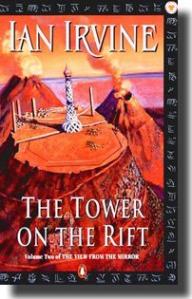 Q: I was prompted to start this series of interviews because there seems to be a perception in the US and the UK that fantasy is a bit of a boy’s club. Do you think there’s a difference in the way males and females write fantasy?
Q: I was prompted to start this series of interviews because there seems to be a perception in the US and the UK that fantasy is a bit of a boy’s club. Do you think there’s a difference in the way males and females write fantasy?
I’m not aware of that perception (about a boys’ club), but I haven’t been to the US for decades, and to the UK only once in the past 30 years. And I’m not an active member of the fantasy professional community so I don’t know what people are currently talking about. Having said that, I certainly formed the view, when I was starting out in writing in the 80s, that fantasy was a boys’ club, since a majority of the big name writers were male. I think that’s changed a lot over the past 15 years, and definitely in Australia where most of the bestselling writers (eg Sara Douglass, Kate Forsyth, Juliet Marillier, Cecilia Dart-Thornton, Fiona McIntosh, Trudi Canavan, Karen Miller, Kylie Chan, Marianne de Pierres) are women. Perhaps less so overseas.
I have five sisters, and my wife has three, and I have two daughters. Perhaps that’s part of the reason why I never wanted to write macho fantasy shackled by historical stereotypes, where the blokes had all the adventures while the women did traditional women’s stuff. It’s fantasy, for God’s sake! The author can create any kind of society he or she wishes.
Back in the 70’s and 80s, when there was a fair bit of feminist fantasy around, I used to think there was a big difference between fantasy written by males and females. But now I’m not so sure. There are plenty of women writers who are writing more violent and less emotional fantasy than I do.
 Q: Following on from that, does the gender of the writer change your expectations when you pick up their book?
Q: Following on from that, does the gender of the writer change your expectations when you pick up their book?
Not for me. I love Robin Hobb’s writing, and JK Rowling’s, and Lois McMaster Bujold’s (her fantasy eg The Curse of Chalion, not her SF), among many other female writers.
The only thing that changes my expectations is the author’s ‘brand’, ie the associations of what kind of a read I can expect based on the author’s name.
Q: And here’s the fun question. If you could book a trip on a time machine, where and when would you go, and why?
Probably to the lottery office or the stock market. Definitely NOT to the races – I’m particular about who I hang out with.
Or to the great library at Alexandria to pick up some originals before it was burned.
Failing that, to the core of the galaxy to touch up my pallid complexion in the light of a million suns. Or back to the time of the Cambrian Explosion where there was a fantastic and never since equalled burgeoning of life of all kinds – though I’d probably be eaten by a trilobite. It would also be interesting to be on site a few minutes before the Big Bang – though I expect I’d (briefly) regret it, lol.
To win an advance copy of Vengeance, Book 1 of Ian’s new epic fantasy trilogy The Tainted Realm:
Giveaway Question: Name the most irritating character in a fantasy novel. What cruelly ironic fate would you like him/her/it to suffer?
Ian’s website
Catch up with Ian on Facebook
Ian’s Books and Writing Blog
Catch up with Ian on Goodreads
Catch up with Ian on Google+.
Follow Ian on Twitter @ianirvineauthor
















